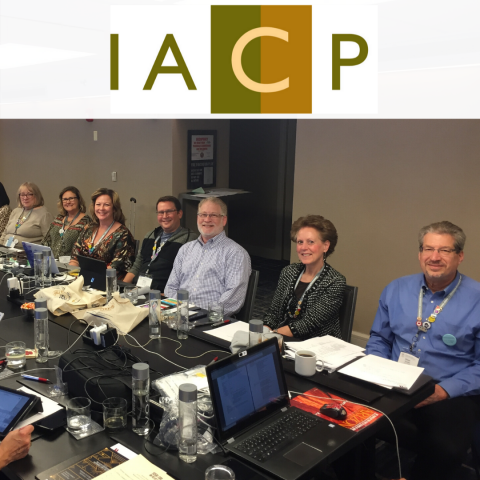
Today I am thinking about the value that IACP provides its current and future members and reflection on a past meeting with my fellow board members.
Here are some takeaways:
First, we all want IACP to provide value to its members. In fact, we want to exceed the expectations of our members as, like our clients for whom we exceed expectations, a satisfied member is more likely to renew and more likely to recommend to others that they join the organization. The more members, the more resources IACP has to offer the Forum, the Institute, webinars, send Speakers to communities around the world, present introductory trainings, conduct research, and develop marketing materials, among all the other things it does for its members.
Second, we believe that IACP DOES in fact provide immense value to its members. Some members know about these benefits, some members take advantage of more of these benefits than others, and some members have told us, in the recent IACP Survey, that they do not know what benefits IACP offers. So there needs to be better communication on everyone's part, from IACP doing better at its messaging to members, and members taking the step of exploring what IACP has to offer in terms of benefits, taking part in trainings and webinars, and opening emails from IACP. If there is a specific benefit that you, as an IACP member, believe you are not getting, please contact an IACP staff member, or Board member, and let us know what you are looking for.
Third, and this is the inspiration behind this writing, there remains a stated desire on the part of members to "get more Collaborative cases." Let's be clear, IACP has no Collaborative cases to give you. Giving you Collaborative cases is not a benefit of being an IACP member. There is not a clearinghouse of Collaborative cases gathered by IACP to be parceled out to communities around the world. What IACP DOES have, however, are resources and the support you need to create more Collaborative work.
Do you want more Collaborative work? If so, consider doing the following:
Rather than focusing on "getting" more Collaborative "cases", change the lens through which you are considering the goal. At the Seattle Forum the theme was “Collaborative Creativity". Creativity is the act of being creative. Through creativity, we create. When you want to "get" cases, it sounds like we are going shopping to fill up our grocery cart. That is NOT what happens as we build our Collaborative caseload. The lens that I invite you to take for a spin is to "create more Collaborative work.”
The trademark for IACP is the "C". In exploring how to "create more Collaborative work”, I have identified the following touch-points, which make up the Four C's. If you embrace all four you are guaranteed, yes, GUARANTEED, to create more Collaborative work:
- Commitment: Make a commitment to create more Collaborative work. There are different ways to do this, the most direct one to treat every new consultation from today on out as work in which you can use your Collaborative skills. The case itself may be a mediation case, a Collaborative case, or a non-Collaborative case, the invitation being to use your Collaborative training in every, yes, every interaction you have with your client or another professional. It is a daily commitment, one where at the start of the day you commit to using your Collaborative skills that day and, at the end of the day, you review those parts of the day in which you used your Collaborative skills.
- Confidence: You can do this. Be confident. You can create more Collaborative work. You can commit to using your Collaborative skills every day, in all situations of your professional (and personal) life. Practice breeds confidence. As your confidence builds, the Collaborative work is going to increase.
- Competence: Having competence as a Collaborative professional is going to result in more Collaborative work. If you are not competent, why would a client want to hire you, and why would another Collaborative professional trust you enough to refer cases to you? Of course, they wouldn't. We need to be competent at what we do. To be competent we need to be curious at how to do this work better. This curiosity, for quality Collaborative professionals, should never end, as every case, every Collaborative interaction, has the potential to increase our Collaborative competence. We also need to realize that Introductory Collaborative trainings are just that: an introduction. To be competent, you need to seek out learning experiences that will enhance your understanding and collaborative skills (which can oftentimes be much different from skills learned for litigation)
- Culture Change: Regardless of your profession, you operate in a distinct professional culture. Consider that the rules that guide you in your profession are likely not conducive to you getting more Collaborative work and, in fact, may be an active bar to you getting more Collaborative work. A culture change is required for you to get more Collaborative work. An embrace of transparency, good faith negotiations, client-focus, and teamwork, for example, requires a different mindset and lens through which you work. Making a culture change will be apparent to others in your community, including other Collaborative professionals who will look at you, again or for the first time, as a viable member in future Collaborative work.
IACP's benefits are many, including supporting you and your creating more Collaborative work. Embrace the Four C's for a year, noting your start date, and report back to IACP after that year with your results. During your journey do not hesitate to reach out to IACP Board members to answer questions and for support, just another benefit of being an IACP member.